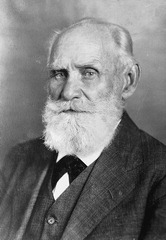Mind/body problem. The issue of how the mind and body relate is one of the perennial underlying questions, not just for psychology, but philosophy, neuroscience and biology also. The essential 'problem' arises because of the division often made in our culture between the 'mind' (or mental processes) and the 'body' (assumed to be physically based). The assumption is often made that mind and body are quite distinct and separate processes (or entities) - a dualism that goes back centuries to Descartes (and, indeed, thousands of years earlier to the Ancient Greek philosopher Plato). Once this 'dualistic' viewpoint is taken, the problem then becomes, 'how can such separate entities/processes influence each other?'. Several approaches retain the 'dualistic' assumption of a separate mind and body. One of these is the philosophy of interactionism. This assumes that mind and body are quite distinct, but interact with each other. So, for example, the mind can instruct the body to raise an arm; similarly, if the body ingests alcohol, this will produce a corresponding affect on the mind. Other solutions involve denying there is any fundamental duality involved, and instead saying that there is only one fundamental entity. This is called monism, and it practice it means either the view that only the physical world is 'real' (materialism), or the view that the fundamental reality is a mental or spiritual one (idealism). An alternative solution sees the mind/body problem as essentially linguistic, stemming from the different ways we label different characteristics of the same entity. 

Philosophy as an academic discipline can be divided into a number of central topics, such as the origins and nature of human knowledge, language, logic, ethics, aesthetics etc..Many of these topics are of great importance to psychologists. Indeed, many of the debates within psychology (e.g. concerning fundamental issues on what should be considered appropriate methodologies, what counts as valid data, the relationships between theories and evidence etc.) are not just scientific, but philosophical questions, requiring the tools of philosophical analysis for a proper treatment. Historically, psychology itself was once a branch of philosophy, called 'mental philosophy'. It became a clearly-recognised discipline in its own right only towards the end of the nineteenth century, with researchers such as Wilhelm Wundt (in Germany), and William James (in the United States). There are still important aspects of psychological issues which can (and perhaps need) to be tackled using the tools of philosophy, in that they need rational argument rather than simply engaging in further experimental/empirical research. One example of this is the study of consciousness which brings up the so-called 'mind-body problem' – the problematic relationship between mental experiences and the physical world. Although neurosciences and other disciplines can try to throw some light on important aspects of this, much of the debate actually centres round questions of rational analysis, use of language and the precise meanings of words etc., which come within the remit of philosophy. 


